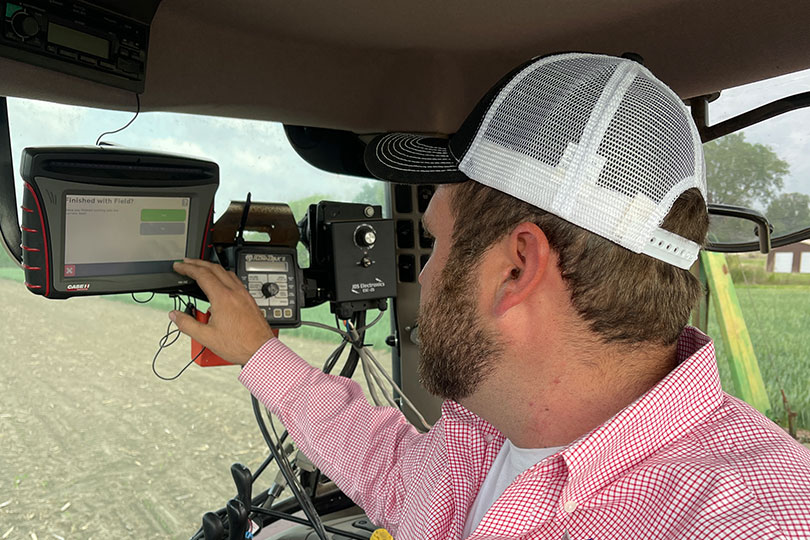By Emmy Powell
Communications Specialist
With the click of a mouse, a cyberattack can put all your farm, ranch and business at risk.
When connected to the cloud, extra caution with data is recommended.
“One could ‘lose the farm’ because of an unforeseen cyberattack,” Steve Cubbage, precision ag consultant for Farmobile, said. “If you are a farmer who has connected data to the ‘cloud,’ or the CEO of a co-op, you are a target, and this threat is not going away.”
On average, it takes 30 days to recover from a cyberattack, and 90% of attacks affect the victim’s ability to operate.
Agriculture is one of the top 10 industries targeted by cyberattacks.
“The agriculture community can no longer sit here and say we’re not a target,” said Andrew Rose, cybersecurity and agroterrorism consultant. “The potential impact of a successful attack on our food and agricultural supply chain is dawning on people.”
Online threats can come in many different forms. Threats traditionally came from hackers or people who gained access to a computer or network with the purpose of stealing valuable information like bank account numbers, social security data or tax information.
But now, cybercriminals lock systems or encrypt files and hold them for ransom.
“Your files are encrypted, and they shut everything down leaving you only a phone number to call,” said Brian Grant, director of Food and Agribusiness at Cottingham & Butler. “It is meant for shock and awe, and they don’t want you to be able to think straight at the time. Hackers will also go through your files and see if personal or trade secrets are present and worth selling to others on the dark web.”
Payments average between $570,000 and $800,000, which has increased by 395% over the past two years. And $1.4 million is the average total cost to remediate a ransomware attack.
The ransom requested is usually high, but a lower ransom can be negotiated.
“America is the largest producer of food in the world because we have the intellectual property, the farmers, the supply chain and everyone wants to get that information,” said Garrett Bladow, Senior Advisory Engineer with Dragos and former technical lead at the National Security Agency.
Researchers with the University of Nebraska-Lincoln are studying cybersecurity for agricultural machinery and technology. They are looking at autonomous tractors and agricultural robotics.
“You could have really smart equipment—an autonomous machine with a lot of computers, sensors and artificial intelligence—but if it has a weak link with respect to cybersecurity, all that intelligence is of no use,” Santosh Pitla, an associate professor of Advanced Machinery Systems at the University of Nebraska-Lincoln, said. “Providing safe and secure agricultural machinery is important for food and national security.”
The Federal Bureau of Investigation (FBI) recommends the following tips to help prevent cyberattacks:
- Keep systems and software up to date and install a strong, reputable anti-virus program.
- Be careful when connecting to a public Wi-Fi network, and do not conduct any sensitive transactions, including purchases, when on a public network.
- Create a strong and unique passphrase for each online account and change those passphrases regularly.
- Set up multi-factor authentication on all accounts that allow it.
- Examine the email address in all correspondence and scrutinize website URLs before responding to a message or visiting a site.
- Don’t click on anything in unsolicited emails or text messages.
- Be cautious about the information you share in online profiles and social media accounts. Sharing things like pet names, schools and family members can give scammers the hints they need to guess your passwords or the answers to your account security questions.
- Don’t send payments to unknown people or organizations seeking monetary support and urge immediate action.
If you or your organization is the victim of a network intrusion, data breach or ransomware attack, contact your nearest FBI field office or report it at tips.fbi.gov and file a report with the Internet Crime Complaint Center (IC3) as soon as possible.
For more information, tips and information about current crime trends, visit ic3.gov.

